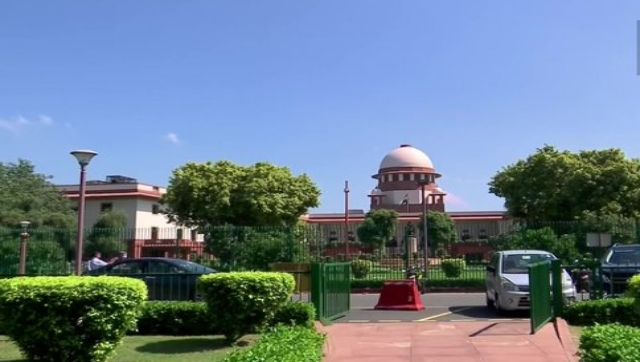The Supreme Court pronounced its verdict on the EWS reservations, and the jury is still out on the correctness of the judgment. Indeed, the judgment is a split verdict with two judges, including the Chief Justice, dissenting and declaring the scheme unconstitutional. The scheme has been enacted through the 103rd Constitutional Amendment, which added article 15(6) and article 16(6) to the Constitution. These provisions permitted the government to enact the EWS reservation scheme and were challenged before the Apex Court. In the terms of reference to the constitution bench, there were five questions that the Court was asked to address, out of which the Court chose to answer the first three, which are as follows: (i) Whether providing reservations on an economic basis breaches the basic structure of the constitution (ii) Whether the exclusion of SCs, STs and OBCs breaches the basic structure (iii) Whether the 10% limit breaches the 50% cap prescribed in Indra Sawhney judgment This piece will attempt to address all these three issues but is centred on third issue. In order to understand the question at hand, we need to appreciate how the court arrived at the 50% limit in the first place. The question has its roots in the famous case of NM Thomas v State of Kerala, where the court was dealing with the question that whether the provisions (certain sub-clauses in Articles 15 and 16) which provide for reservations further the non-discrimination guarantee under Articles 15 and 16 or are they exceptions because reservations still discriminate but do so with positive intent, often referred as positive discrimination. This question is at the root of the affirmative action jurisprudence that has permeated the judgements of the Supreme Court since then. In this case, the court answered that the sub-clauses provided for reservations are not exceptions to the parent provision guaranteeing non – discrimination on the basis of caste under Articles 15 and 16. The effect of this interpretation is, and one can argue, that the provisions providing for reservations are actually not even needed since the parent provision is enough to provide for reservations. The court has argued that reservations are a mechanism to end caste-based discrimination, and hence such provisions should be seen as furthering the intent of the provision and not as an exception. The ramification of this deduction by the court was manifested by the argument that by this logic, reservations can be theoretically hundred per cent. This is so because they are not exceptions but form part of the primary rule furthering the non-discrimination guarantee of the constitution. Obviously, the governments subsequently started providing reservations to whatever extent they deemed it fit. Thus, the question came up again before the Court in Indra Sawhney v Union of India. Again, the court gave the same answer to the same question and held that sub-provisions providing for reservations are not exceptions but form part of the primary rule. However, it still set a limit of 50% on the total seats that can be reserved but gave no solid reasoning as to how both of these assertions could be upheld together. Once it has been upheld that the provision is not an exception, it can occupy the whole field of operation of the parent provision, and no limit can be prescribed. Yet, this is the primary judgment, and the limit referred to herein is considered sacred. Since the Indra Sawhney court overlooked the relationship between the limit and the question if the concerned provision is an exception or not, it assumes a lot of importance in the context of the current judgment. This is so because the state could have simply argued that the EWS quota furthers the non-discrimination guarantee provided under Articles 15 and 16 since reservations, anyway, are not an exception. Arguably a constitutional amendment was not even required in the first place. It is important to note that Articles 15 and 16 do not mention income or financial status as a criterion for non-discrimination. Then it can be asked that why the debate is centred on these provisions and the legislature has added sub-provisions in these provisions. This is so because the EWS quota excludes SCs, STs and OBCs, which is a classification based on caste, which is a criterion under Articles 15 and 16. Thus, the government could have pleaded easily that the EWS quota furthers the non-discrimination goal of these provisions by addressing the economic inequalities in the social groups which can’t avail of the benefits of other affirmative action schemes. The straightforward argument is that those classes which are eligible for one positive discrimination scheme can’t be entitled to another one.This is also true for those who are entitled under the EWS scheme, and they will obviously not be entitled to receive the benefit of any other affirmative action scheme. Thus, we can say that the court arrived at the proper conclusion but did not follow the correct process and did not frame or address the correct issues while dealing with the case. It must be stated that ending caste-based discrimination is and should be a goal of the Indian state, but it can’t be the only goal under the equality code of the Constitution. Ending income inequality is also a goal to establish an egalitarian society. The author is an assistant professor of Law at National Law University Delhi Read all the Latest News , Trending News , Cricket News , Bollywood News , India News and Entertainment News here. Follow us on Facebook, Twitter and Instagram.
Ending caste-based discrimination is and should be a goal of the Indian state, but it can’t be the only goal under the equality code of the Constitution. Ending income inequality is also a goal to establish an egalitarian society
Advertisement
End of Article


)

)
)
)
)
)
)
)
)



